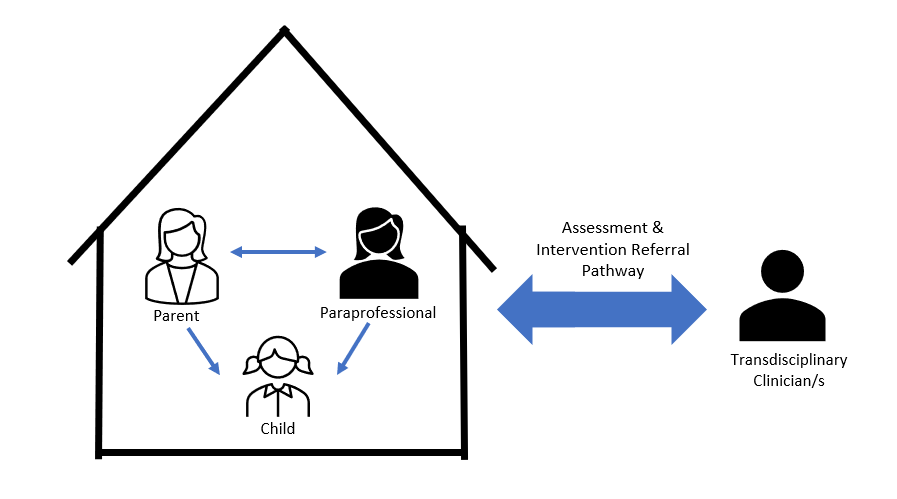MECSH 2 to School
 The 2 to School project is developing a model of support for families of children aged 2-6 years who are living with significant adversity. Expanding on the successful support provided through the Maternal Early Childhood Sustained Home-visiting program (MECSH), 2toSchool employs a similar structured core and variation program design focussed on child and family health, learning and development, with specialist interventions as needed, based on individualised family-centred care planning. The 2toSchool model aims to overcome issues of access by recruiting children/families who may not already be linked in with a service, and provide ongoing support to these families with a focus on integrating parents in an active role in the development and support of their child. 2toSchool focusses on the core domains of:
The 2 to School project is developing a model of support for families of children aged 2-6 years who are living with significant adversity. Expanding on the successful support provided through the Maternal Early Childhood Sustained Home-visiting program (MECSH), 2toSchool employs a similar structured core and variation program design focussed on child and family health, learning and development, with specialist interventions as needed, based on individualised family-centred care planning. The 2toSchool model aims to overcome issues of access by recruiting children/families who may not already be linked in with a service, and provide ongoing support to these families with a focus on integrating parents in an active role in the development and support of their child. 2toSchool focusses on the core domains of:
- parent responsivity
- child and family health and health promotion
- child language, development and behaviour
- the early learning environment, and
- linking families with informal and formal community-based supports, including early childhood education and care.
Variation for each family will support engagement with therapeutic interventions related to their and their child’s needs.
 The project will sustain the support and community and health linkages created with MECSH families for families who completed the MECSH program but continue to have significant unresolved needs, as well as engaging families who were ineligible for MECSH due to the program eligibility criteria for recruitment in the first 8 weeks of a child’s life. The 2toSchool program plans to employ a paraprofessional (eg. Aboriginal health worker, allied health assistant, or equivalent) as the core deliverer/contact for families. They will provide a constant point of contact for the family, deliver structured content in the core domains to families, and support family engagement with professional/specialist services.
The project will sustain the support and community and health linkages created with MECSH families for families who completed the MECSH program but continue to have significant unresolved needs, as well as engaging families who were ineligible for MECSH due to the program eligibility criteria for recruitment in the first 8 weeks of a child’s life. The 2toSchool program plans to employ a paraprofessional (eg. Aboriginal health worker, allied health assistant, or equivalent) as the core deliverer/contact for families. They will provide a constant point of contact for the family, deliver structured content in the core domains to families, and support family engagement with professional/specialist services.
The paraprofessionals working with families will be supported by a lead professional. This may be a single transdisciplinary professional throughout the program who is the care lead and coordinator, or it may be a series of professionals related to the more significant need at the time, who coordinates care and additionally provides specialist therapy. The professional will conduct regular assessment of the family/child, refer to specialist intervention (and/or provide intervention where appropriate), and support the paraprofessional working with the family including training in maintenance of therapy within the home. This support recognizes that the provision of specialist services operates as a team around the triad (parent + child + paraprofessional).
The current research aims to:
- Develop the model, including staffing, training, content and resource components, through systematic reviews of literature.
- Explore the variations needed to ensure the model is able to be implemented in differing national and international contexts.
- Develop the protocol for a mixed-method feasibility study, in preparation for a randomised controlled effectiveness trial.
